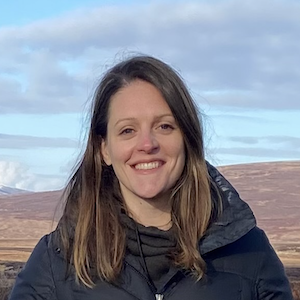
Chelsea Koch Assistant Professor Environmental Science
- Degrees
- B.S. Environmental Science, University of Mary Washington
M.S. Marine Science, University of South Carolina
Ph.D. Marine, Estuarine and Environmental Science, University of Maryland Center for Environmental Science - Bio
- I am a marine scientist with a focus on Arctic ecosystems. My research involves the measurement of biomarkers, stable isotopes, and contaminants to understand how climate change and pollution are impacting the marine food web, with a particular interest in subsistence or wild foods for Arctic Indigenous communities. Working alongside communities to co-produce knowledge and promote equitable research is a central focus of my work.
- See Also
- Research Website
- For the Media
- To request an interview for a news story, call AU Communications at 202-885-5950 or submit a request.
Teaching
Summer 2024
-
ENVS-312 Oceanography
Fall 2024
-
ENVS-160 Biodiversity and Ecosystems
-
ENVS-160 Biodiversity and Ecosystems
Spring 2025
-
ENVS-310 Environmental Methods
-
ENVS-496 Selected Topics:Non-Recurring: Arctic Climate Change
Scholarly, Creative & Professional Activities
Selected Publications
- Chelsea W Koch, Sarah Sonsthagen, Lee W Cooper, Jacqueline M Grebmeier, Ann Riddle-Berntsen and Robert S Cornman, Prevalence of pelagic diatoms and harmful algae in tellinid bivalve diets during record low sea ice in the Pacific Arctic determined by DNA metabarcoding, Frontiers in Marine Science (in press).
- Apassingok, M., Holland, M.M., Kelly, B.P., Koch, C.W., Metcalf, V., Rookok Jr., B. & Walsh, J. (2024) How does the changing marine environment affect hunters’ access to Pacific walruses? Arctic, Antarctic, and Alpine Research. 56 (1), 2367632. doi:10.1080/15230430.2024.2367632.
- Koch, C.W., Brown T.A., Amiraux R., Ruiz-Gonzalez C., Maccorquodale M., Yunda-Guarin G.A., Kohlbach D., Loseto L.L., Rosenberg B., Hussey N.E., Ferguson S.H., Yurkowski D.J., Year-round utilization of sea ice-associated carbon in Arctic ecosystems, Nature Communications 14, 1964 (2023). https://doi.org/10.1038/s41467-023-37612-8
- O. Ahkinga, E. Alexander , M. D. Apassingok , B. Baker , M. Baker , M. Berman , M. Blair, E. Bloom, N. J. Burns, A. E. Copenhaver, E. Q. Cravalho , J. Donatuto , K. Dunton, S. V. Fletcher, E. Froehlich, J. C. George, C. Harris, M. Heavner, M. Hoffbeck, M. Holland, M. T. Jorgenson, B. P. Kelly, E. Kerttula, G. W. Kling, C. W. Koch, L. Landrum, S. Lange, M. K. Lukin, E. Marino, V. K. Metcalf, C. Nunn, R. Pincus, P. Pungowiyi, M. Robards, J. Q. Schaeffer, A. Shahbazi, A. Shultz, D. T. Turner, J. E. Walsh, F. Wiese, G. Wong, J. Wilson, 2022. Consequences of Rapid Environmental Arctic Change for People. Arctic Report Card 2022, M. L. Druckenmiller, R. L. Thoman, and T. A. Moon, Eds., https://doi.org/10.25923/kgm2-9k50
- Koch, C.W., Cooper, L.W., Woodland, R.J., Grebmeier, J.M., Frey, K.E., Stimmelmayr, R., Magen C. and Brown, T.A., 2021, Female Pacific walruses (Odobenus rosmarus divergens) show greater partitioning of sea ice organic carbon than males: Evidence from ice algae trophic markers. PLOS ONE. https://doi.org/10.1371/journal.pone.0255686
- Koch, C.W., 2021, The significance of sea ice algae in the Pacific Arctic determined by highly branched isoprenoid biomarkers. (PhD Dissertation) University of Maryland, College Park, Maryland, https://doi.org/10.13016/jtti-zi4e